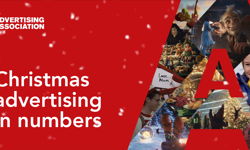Can You Publish Without Spending Money?
I met an author friend at a party recently. Despite being over retirement age, he's set up his own e-publishing outfit and is making his own books and those of contemporaries available for the Kindle, the Nook and the rest. He's not paying any advances. Instead, he's offering the writers a large percentage of the gross. At the moment, they're finding it attractive. At the moment, it's fair to say, they're a bit green. Anyway, having grappled with the practicalities of adapting books for the new medium, my friend now finds himself in the curious position of being asked to advise his own publisher, a major multi-national behemoth, on what they should do in the same field.
How did that go? I asked. He shook his head. "The problem with traditional publishers," he said, "is that the first thing they want to do is spend money."
It wasn't an entirely flippant remark. It was a recognition that the traditional arithmetic of book publishing may not work anymore. The old idea that a book publisher was somebody who predicted what the market might like, tore off a cheque to the person who seemed best equipped to provide it and then piled a load of copies high at the front of the store may be dead and gone. Everybody in the book business is facing the fact that the only thing keeping the lights on is Fifty Shades of Grey, which started off as a piece of fan fiction and then only found its way to print via a print-to-order project run by an Australian writers group. How many genius editors and agents were involved in bringing that one into the world? Not one. Makes you think.
The problem is, obviously, that while the old world is either dead or at the very least looking sick, the new world is taking a devil of a long time to come along and take its place. It would be nice if the old arithmetic was going to be neatly replaced by a new sort which suddenly made sense. There's no sign of that. In its stead, there's a prevailing view that you just have to follow the money even if the money seems to be coming in smaller amounts from a greater number of sources. David Carey, CEO of Hearst Magazines in the USA, recently told the Economist that already magazines need five or six revenue streams to be successful. That may mean that he's looking at a neat chart showing what those five or six are and how they work. It could be a corporate way of saying we're going to take every penny we can get.
The old return on investment model is certainly no longer reliable. I was talking to a publisher recently who had started a website pumping out stories about cycle racing and then was repackaging the same material into a weekly iPad magazine for money. This can only be a step away from the magazine which sells back to readers the content that they've devoted their energies to generating themselves. That's how radio phone-in shows have always worked. We'll see more of this kind of thing as publishers look for ways of publishing without spending money on professional editorial.
At the other end of the market there's Intelligent Life, the features magazine from the Economist which has recently gone from quarterly to six issues a year. I was talking to its editor Tim de Lisle. He's one of the few people in the market who can justify commissioning pieces as long as 5,000 words at a very generous word rate because he knows that his magazine can get that back in high-end advertising, which continues to flow right through these troubled times. Not everyone is so well placed.
As ever there's the global route to covering your investment. It could be that you can no longer justify the amount you have to spend on generating material on the basis of the revenue that you get back from one title in one territory. As companies seek to spread their bets, the arguments of those who believe that you can take a title which works in one country and make it work in another are probably being listened to more now than they've ever been before.
For every case where it works - Elle, Hello, Men's Health - there are two cases where it used to - Maxim, Premiere - and scores more where it was tried and failed - and here your list depends on how much paper you've got - Rolling Stone, Wired mark one, Entertainment Weekly, Smash Hits and on unto infinity. All these have fallen foul of the fact that although different countries may have the same enthusiasms, they pursue them in slightly different ways and read about them in different ways again. In every case, the sweet spots are more different than you might think when looking from overseas.
The Frenchman who used to oversee the editions of Elle around here once said to me, "why do you English always talk about 'intelligence'? It never occurs to anybody else". He'd correctly identified that we can only enjoy luxury if we pass it off as being somehow improving. It's differences like that that make the difference. Sometimes you have to sell the same thing while appearing to be selling something else altogether. The successful exporters of magazine brands know this.
While French publishers always assume (as the French do about most things) that they know better than the rest of the world, the Germans have always taken the view that they will proceed from what they know, be prepared to back their judgement and make adjustments in response to what the market seems to be telling them. That's why the last month has seen the appearance of LandLove (a clunky literal translation of the German title Land Leben) from Burda and Wonderpedia (a clunky UK equivalent of the German title Welt Der Wunder) from Bauer. The former is a celebration of the country life, the latter is a popular science title. They both feel a bit general for the British market, but then we tend to always say that, don't we? The weather can't be helping LandLove at the moment, particularly as it proposes building a cheese safe. "An essential bit of summertime kit", apparently.
The magic of print
The new Vanity Fair has one of their "more stars than there are in heaven" group pictures, this time to mark the 100th anniversary of Paramount Pictures. The problem with these things is that Photoshop post-production is so capable nowadays that even things that were done for real look at least a bit faked. It's also a clear case of paper doing something that a screen can't. I've been looking at it on the Vanity Fair app. You can pinch and zoom all you like but this is one of those cases where the interface between hand, eye and paper is an unimprovable way to process the information. On paper you look at the little groups of people - Demi Moore next to Bruce Willis, Jack Nicholson just so far from Dustin Hoffman, Jack Black safely in cult corner with David Lynch - at the same time as you're looking at the whole picture. You can't do that with a screen. On paper it would keep you going for an hour. You move the paper back and forth and from side to side. On a screen it gets a bit tiring after a few minutes. Makes you realise that an app is, after all, like looking at the world through a window.
Who has bragging rights?
I chaired a session at the recent PPA Conference in which three editors - Lisa Smosarski of Stylist, Gill Hudson of Readers Digest and Paul McNamee of the Big Issue - spoke about the improvements they've made to their titles in the last year. They all did an exceptional job in the short time available, the polish of their presentations indicating that the days of the editor as an inky-fingered recluse are well and truly gone. If we'd had more time, I would have pointed out what other people were no doubt thinking - that none of them edit titles that we go in and purchase in the newsagent in the traditional way. Maybe it's only those titles have who have had a year good enough to brag about.
New member of staff
I got my copy of Top Of The Pops magazine. It came in a plastic bag (with "to avoid dangers of suffocation" warnings, naturally) containing "five exclusive One Direction photo cards and a notebook and pen". The inclusion of the latter shows a touching faith in old media. Running my eye down the staff block, I came upon a job that I've never seen before. ‘Covermount buyer’. That's a first.










